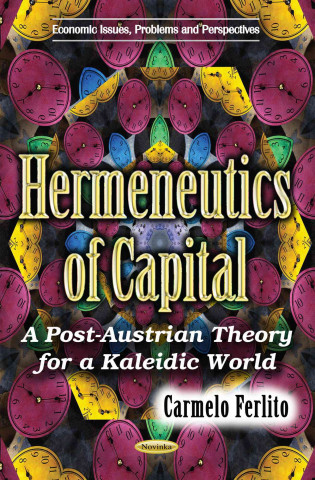
Code: 14262761
Hermeneutics of Capital
by Carmelo Ferlito
In presenting Hermeneutics of Capital, the author fears that most modern economists are not prepared or even interested in the approach that has been taken in this book. Today, economists are more likely to search for exact theori ... more
- Language:
 English
English - Binding: Paperback
- Number of pages: 90
Publisher: Nova Science Publishers Inc, 2016
- More about this

130.34 €
RRP: 137.18 €
You save 6.84 €
Availability:
50/50 We think title might be available. Upon your order we will do our best to get it within 6 weeks.
We think title might be available. Upon your order we will do our best to get it within 6 weeks.We search the world
You might also like
-

Sorcerer's Apprentice: My Life with Carlos Castenada
16.83 € -20 % -

History Repeated: Block Exchange Quilts by the 19th Century Patchwork Divas
26.97 € -12 % -

New Messenger
13.08 € -19 % -

Secret de Dominique (Ne)(Le)
10.64 € -

Sämtliche Werke 7
64 € -9 % -

2014 - Tu Horoscopo Personal
19.16 € -4 % -

Un seguidor de Montigue visita La Habana : comidas profundas
13.68 €
Give this book as a present today
- Order book and choose Gift Order.
- We will send you book gift voucher at once. You can give it out to anyone.
- Book will be send to donee, nothing more to care about.
Availability alert
Enter your e-mail address and once book will be available,
we will send you a message. It's that simple.
More about Hermeneutics of Capital
You get 325 loyalty points
 Book synopsis
Book synopsis
In presenting Hermeneutics of Capital, the author fears that most modern economists are not prepared or even interested in the approach that has been taken in this book. Today, economists are more likely to search for exact theories functional relationships between often logically independent variables rather than to question the nature of their science and its main task. This book argues that economics is about human nature, human conduct and human institutions, or what Mises called human action. The present book, however, is not an epistemological one. It is about capital theory. The attempt of Hermeneutics of Capital is to reconcile man and capital, which are often presented as competing elements in a conflictual world. What the author tries to do is even more than looking for a simple reconciliation; following Ludwig Lachmanns application of hermeneutics to economics, the author tries to define capital as the outcome of subjective mental processes, determined by individual intentions and expectations and not by specific physical or economic features. The author defines the theory of post-Austrian. In fact, the authors attempt is to further develop the Austrian School of Economics teaching, trying to contribute in enhancing concepts and theories which are believed to be necessarily reshaped. The author connected his capital theory with a consistent entrepreneurship theory, which goes beyond the usual contraposition between Kirzners and Schumpeters entrepreneurial theories and builds a synthesis centred on the idea of entrepreneurship as a subset of Misesian action involving specific capital formation processes. Moreover, the author took into account the traditional version of the Austrian Business Cycle Theory and critically revised it, arguing that crises are not simply the consequences of monetary manipulations, but they are the natural consequence of every expansionary wave. Shackle reminded us that a good economist is like a bottle of wine. He must begin by having the luck to be laid down, as it were, in a vintage year, when he himself and his class companions are the high-quality stuff in which ideas and theories ferment and discourse sparkles in a glow of golden light. But this is not enough. He must mature. This book helps guide readers to understand reality.
 Book details
Book details
Book category Books in English Economics, finance, business & management Economics Economic theory & philosophy
130.34 €
- Full title: Hermeneutics of Capital
- Subtitle: A Post-Austrian Theory for a Kaleidic World
- Author: Carmelo Ferlito
- Language:
 English
English - Binding: Paperback
- Number of pages: 90
- EAN: 9781634851299
- ISBN: 1634851293
- ID: 14262761
- Publisher: Nova Science Publishers Inc
- Weight: 200 g
- Dimensions: 157 × 228 × 7 mm
- Date of publishing: 01. May 2016
Trending among others
-
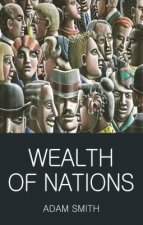
Wealth of Nations
5.87 € -21 % -

Basic Economics
38.34 € -16 % -

Wealth of Nations
13.28 € -22 % -

Worldly Philosophers
17.74 € -

Human Action (4-Volume Set)
39.76 € -7 % -

Capitalism: A Very Short Introduction
9.32 € -28 % -

Mathematics for Economists
44.32 € -10 % -

Bourgeois Virtues - Ethics for an Age of Commerce
22.21 € -17 % -
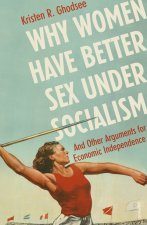
Why Women Have Better Sex Under Socialism
10.95 € -23 % -
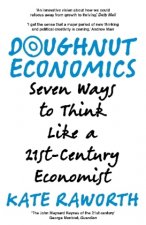
Doughnut Economics
11.15 € -29 % -

Book of Satoshi
19.67 € -

Essential Keynes
16.93 € -8 % -

New Economics for Industry, Government, Education
38.64 € -16 % -
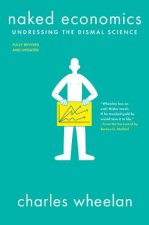
Naked Economics
16.02 € -16 % -

Inquiry into the Nature and Causes of the Wealth of Nations
10.95 € -24 % -

Inquiry into the Nature and Causes of the Wealth of Nations
29.61 € -

General Theory of Employment, Interest and Money
15.81 € -13 % -

Seventeen Contradictions and the End of Capitalism
12.26 € -1 % -

Origin Of Wealth
11.35 € -28 % -

Principles of Economics
21.80 € -

OPEC and the Price of Petroleum
61.77 € -
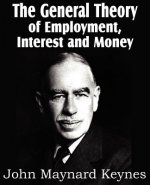
General Theory of Employment, Interest and Money
21.09 € -

Contra Keynes & Cambridge
15.21 € -4 % -

Bourgeois Virtues
41.78 € -21 % -

Economics Book
24.54 € -15 % -

Book of Satoshi
29.81 € -
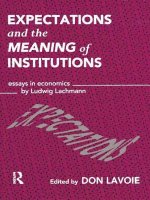
Expectations and the Meaning of Institutions
78.30 € -

Reflections on Ethics, Freedom, Welfare Economics, Policy, and the Legacy of Austrian Economics
20.48 € -3 % -

Essence of Entrepreneurship and the Nature and Significance of Market Process
19.67 € -7 % -

Cultural Considerations within Austrian Economics
24.94 € -

Legalized Crime of Banking
21.80 € -

Fortunes of Liberalism
14.39 € -8 % -

Epistemological Problems of Economics
12.37 € -6 % -

Keynesian Episode
12.87 € -4 % -

Four
9.83 € -10 % -
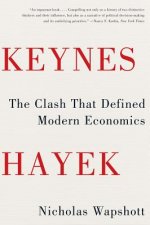
Keynes Hayek
17.64 € -12 % -
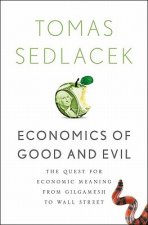
Economics of Good and Evil
25.45 € -18 % -

Happiness
12.97 € -18 % -

Wealth of Nations
14.19 € -18 % -
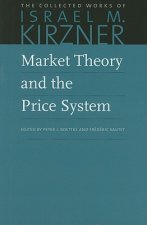
Market Theory & the Price System
17.03 € -19 % -
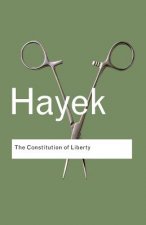
Constitution of Liberty
40.47 € -

Economics for the Common Good
19.06 € -5 % -

Wealth of Nations
24.44 € -23 % -

Mathematics for Economics and Finance
55.17 € -

What the Dog Saw
8.71 € -29 % -

Technological Revolutions and Financial Capital
41.28 € -9 % -

Kicking Away the Ladder
24.34 € -13 % -

Oxford Handbook of Law and Economics
57.41 € -
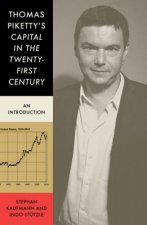
Thomas Piketty's 'Capital in the Twenty-First Century'
25.35 €
Collection points Bratislava a 2642 dalších
Copyright ©2008-24 najlacnejsie-knihy.sk All rights reservedPrivacyCookies


 15549 collection points
15549 collection points Delivery 2.99 €
Delivery 2.99 € 02/210 210 99 (8-15.30h)
02/210 210 99 (8-15.30h)